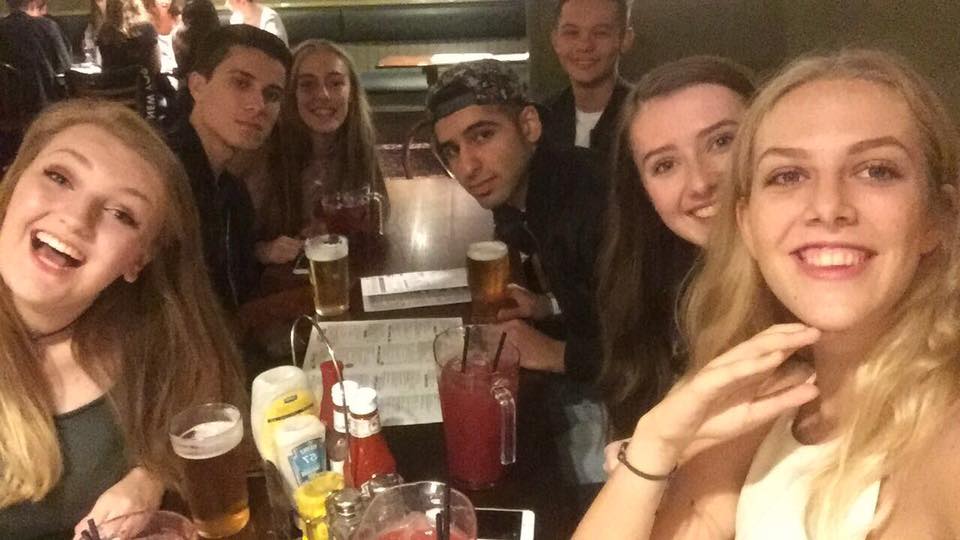James Hancock discuess the "golden years" of university and the panic that everyone else is having a better time.
Not everybody is going to have an amazing time throughout university, even if you were promised by your careers advisor that it would be “the best time of your life”. Unless you’re one of the lucky ones, you’ve probably experienced this first hand for yourself. You look around at everyone else, who seem to be having a much better time than you, enjoying partying, getting work done, having relationships and gliding past anything else you might stress about.
A large percentage of students are going through the same sub-par "golden university years" experiance as you.
You don’t see or hear much of other people’s problems, as personal issues are hardly ever openly discussed, so you get more worried that something is wrong with you. The human brain is excellent at adapting to your chief worries to support this — if being sociable is an issue, when you see other people laughing and chatting together, that makes you feel lonelier and reinforces the thought that you aren’t sociable enough. Such a vicious cycle applies with many other issues, with varying extents.
Uni is genuinely stressful, they should really have prepared us for the mental difficulties from sixth form imo. It's a bit too late once you're at uni and realise that you don't know how to cope.
— Roslyn (@itsRoslyn) 4 December 2017
However, you have to note that a large percentage of students are going through the same sub-par “golden university years” experience as you, hiding their fears, stresses and pain behind their social masks. It is very much true that there is a spectrum of happiness, where some people are notably happier or more content than others, but the key fact to remember is that no one is perfect nor happy all the time, no matter what outward appearances might show. What is more, is that with a student population of 22,278 in University of Bristol, there are undoubtedly many students out there facing down very similar problems to you.
And let’s think about other universities — not just UWE, but also Harvard, Hong Kong, or Helsinki, or any one of the thousands of universities out there, filled with students like us in similar situations, whether better or worse. We all face a unique situation, but it’s important to remember that we are certainly not alone in having similar issues. You are not alone, there are many other people like you.
You are not alone, there are many other people like you.
We can assume everyone is struggling with issues that they hide from outsiders with social masks, only to be shared with close friends or family, if at all. If we often compare ourselves to fellow students based on our understanding of who they are, which is almost entirely their social masks, we really aren’t making a fair comparison. You understand the darkest secrets and greatest hopes of your heart — and you’re comparing yourself with someone who seemed nice from a few lines of conversation and is laughing at a joke. We compare ourselves with others mostly indirectly, in thoughts that drift though our head commenting on the style of a person’s clothes, or perhaps surprise at the amount of work they have done, and then thinking about how well you are standing relative to them. It would serve us well to be more conscious of our subtle comparisons, to remind ourselves that we don’t know what we are comparing ourselves to.
Even though we compare ourselves to others, we actually don't care that much about other people.
As many experiments have shown, even though we compare ourselves to others, we actually don’t care that much about other people. We are so focused on whether we fit in, whether what we are saying and or behaving is acceptable, that other people and their actions are quickly disregarded in social situations. We intensely exaggerate to ourselves how much other people are viewing and scrutinizing our actions, when in reality no-one cares. No one cares about minor mistakes — and if they notice, they will most likely forget within the moment passing. This is a liberating and difficult idea to come to terms with but, honestly, when did you last spend a social encounter scrutinizing another person’s actions? You really don’t care that much about other people, and thankfully, the feeling is mutual.

What people choose to show on social media reinforced the idea that you are not having as much fun as others. Photo by Lily Hammond/ Epigram
What you should take out of this letter is that the “golden years” view of university life combined with flawed self comparison with others leads to unrealistic expectations about what you should be. Enjoyment of university is much more likely to be found by forgetting about what other people are doing, or whether you are doing it right, and focusing on what matters to you.
Featured Image: Alexis Brown/ Unsplash









